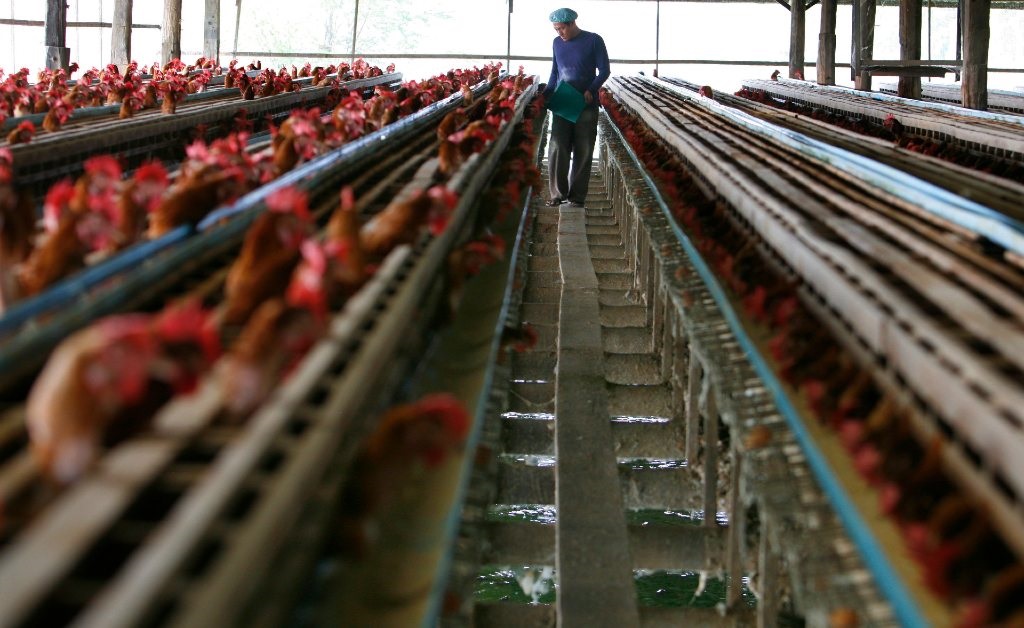
- For more financial news, go to the News24 Business front page
SA's top poultry body has confirmed two Mpumalanga farms experienced an outbreak of the highly infectious H7 avian flu strain, which is different from the H5N1 one that wiped out more than a million birds in the Western Cape the past few months.
Although the third outbreak of avian flu in three months was contained, the South African Poultry Association (SAPA), which has over 100 members, said on Tuesday it was concerned because all of the local flareups experienced this year had been spread by wild birds. This made it more difficult to control.
But Izaak Breitenbach, general manager of SAPA's broiler division, said that the problem was "by no means out of control".
"The concern though is that our wild birds are positive and therefore there is a good chance for the disease to be spread from wild birds to chickens in more outbreaks than the three we've seen and in more parts of the country."
The latest outbreak began on a small farm in Delmas about two weeks ago before spreading to a larger commercial farm in that area.
The Paris-based World Organisation for Animal Health (WOAH) said, according to Reuters, that a total of 9 500 farm poultry died in the latest South African outbreak, with one one farm seeing 2 000 birds wiped out and the other 7 500.
According to Breitenbach, the poultry that died would have either been deliberately culled or perished from the virus, adding that SA had a "stamp-out policy" that would see poultry culled within a 3km radius of the infections.
Breitenbach, who added he had been told that as many as 3 000 birds had died on the smaller farm, said the H7 strain was also a uniquely South African one that is "not found anywhere else in the world".
The initial outbreak of avian flu in the Western Cape in April and May was due to the H5N1 virus, which was also responsible for a second outbreak in the George area about two to three weeks ago.
One positive though, said Breitenbach, was all three outbreaks were spread by wild birds and not farm poultry, adding that this was a testament to South African farmers' stringent biosecurity measures already in place.
He said in total about 1.5 million birds had died in all three outbreaks – either through culling or expiring from the flu itself.
Astral Foods, SA's largest poultry producer, said that avian flu was a risk to the global industry that local producers constantly managed. Various outbreaks in recents did not just affect SA, but also hit North and South America, as well as Europe.
Astral's group chief operating officer, Gary Arnold, said that SA, which experienced outbreaks in 2017 and 2021, had learnt from past flare-ups, adding that the local poultry industry was "now far better prepared for any outbreaks although it remains a risk".
"Biosecurity is your first and foremost tool in your tool bag to combat the disease. You have to stop it getting on to your farms. So the likely vectors of transmission will always be wild birds, people or equipment. As long as you practice good biosecurity and you take all necessary precautions to avoid the virus being transmitted onto your property, you should be okay, but it is a risk that is now part of the industry's daily management."
Arnold added that even if an initial outbreak was caused by wild birds, there was always the risk that it could be spread to other farms from infected poultry depending on how close by they were. He said that once an infection has been identified, the control measures, including the safe disposal birds were also very important in preventing further transmission.
He said Astral had not been affected by any of the outbreaks this year, although it was impacted by the ones that occurred in 2017 and 2021.
Department of Agriculture spokesperson Reggie Ngcobo said the H7 strain was detected in samples collected at the beginning of June "from a commercial layer facility and a nearby emerging farmer" in "both layers and multi-age broiler chickens".
Ngcobo said apart from the two incidents on these farms, a "third suspected outbreak is being investigated".




 Publications
Publications
 Partners
Partners












